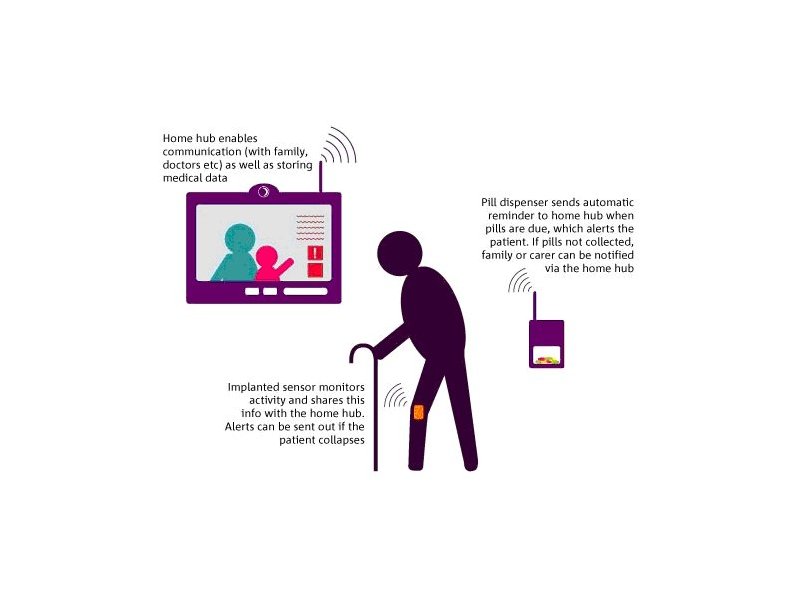Would you really want a network inside your body?
New sensor tech would make your body wireless

Fancy a network inside your body? Of course you don’t, but it’s just one part of some crazy-ass future-gazing dreamt up by communication watchdog Ofcom in a report about the future of wireless tech.
Tomorrow's Wireless World looks 10 to 20 years into the future to discover innovative technologies which are being developed that could improve basic issues such as healthcare and transport. We’ve gone in-depth on some of the technologies that it says will come about over the next two decades.
Why is Ofcom looking at the stuff? The regulator says that since wireless spectrum is so finite, the research helps it understand how it might be best used in future.
Among the stranger predictions is that of in-body networks – sensors and other technology implanted within the body to monitor recovery from a major accident, for example. The in-body network sensors would wirelessly monitor how a patient moves, or pick up vital health signs, such as blood sugar levels.
Similarly, small sensors could constantly and wirelessly monitor those at risk from heart attacks, or who suffer from asthma or diabetes, sending alerts to a mobile phone when there is a problem. Ofcom says a number of UK universities, including Imperial College, are carrying out research in this area.
The report also mentions the work currently in progress on intelligent transport systems that could help cars communicate wirelessly with each other to avoid collisions. This technology is presently being developed by many major car manufacturers around the world and could be fitted to vehicles by 2015.
Not all pipedreams
Get daily insight, inspiration and deals in your inbox
Sign up for breaking news, reviews, opinion, top tech deals, and more.
Other technology is closer to us in time. We might want our vehicles to automatically alert emergency services of an accident, enabling faster response times from ambulance and police. And this one definitely isn’t a pipedream: the European Commission is currently discussing whether to endorse the technology – it could be on the market by 2011.
Likewise, we might soon see smart drug dispensing. Working in the home, this would check if drugs have been taken or whether too much has been dispensed. The report says this area is likely to use existing technologies, such as Bluetooth or wireless local area networks.
The report predicts we’ll see technology that enables those with food allergies to check whether they are safe to eat certain foods – perhaps even as they shop. This would use existing Radio Frequency Identification (RFID) tags to identify items. A research project in Finland has already developed a mobile phone which incorporates a RFID nutritional scanner, and this or similar technology could be on the market in the UK within the next five years.
Ofcom says there are now more mobile subscriptions in the UK than people – 70 million. "Our lives continue to be transformed by developments in wireless technology," says Professor William Webb, head of Research and Development at Ofcom. "It helps Ofcom plan for future spectrum use."
Dan (Twitter, Google+) is TechRadar's Former Deputy Editor and is now in charge at our sister site T3.com. Covering all things computing, internet and mobile he's a seasoned regular at major tech shows such as CES, IFA and Mobile World Congress. Dan has also been a tech expert for many outlets including BBC Radio 4, 5Live and the World Service, The Sun and ITV News.